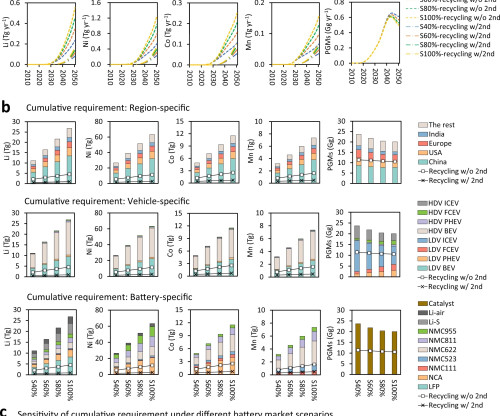Cornell study examines trade-off between critical metals requirement and transportation decarbonization
Green Car Congress
APRIL 17, 2023
Among the researchers’ suggestions for managing this demand: Constructing a circular economy would be indispensable to the critical metals if it achieved a closed-loop supply chain in the future. Zhang et al. Strategies should be considered to promote the recycling efficiency and recovery rate of end-of-life batteries at a proper pace.











Let's personalize your content